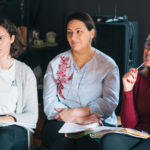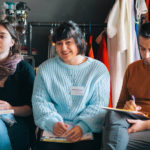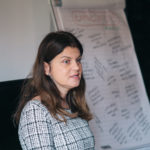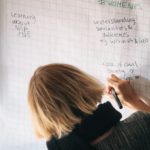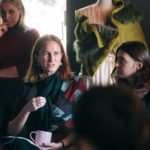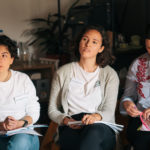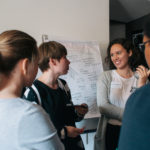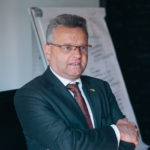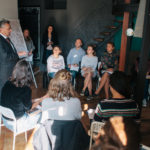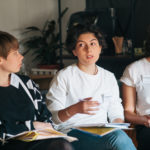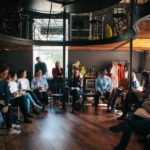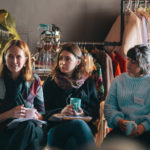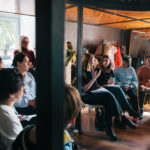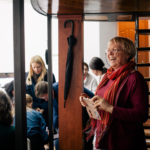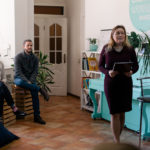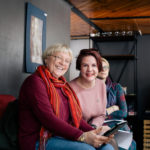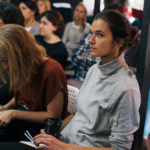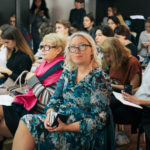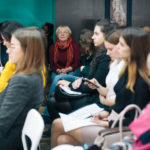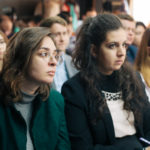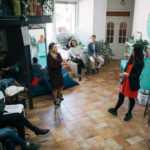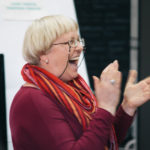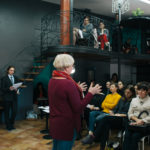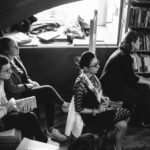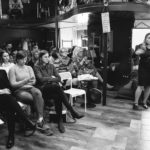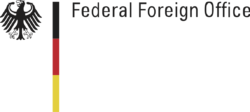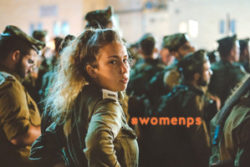
#womenps
Centre of Public Initiatives “Ideas for Change” in cooperation with Polis180 (Berlin) and the IDP Women Association “Consent” (Tbilisi) implemented a joint project on the role of women in peace and security in Ukraine and Georgia.
Tens of thousands of people from several Eastern European countries have been suffering from violent conflict since the end of the Cold War. The suffering of women and men during and after conflicts is different: women are more often deprived of access to housing, health and social services, and their access to labor markets is often more limited. In Ukraine, and Georgia, women often face outright harassment or even sexual exploitation when crossing the administrative boundary line/contact line. At the same time, studies have shown that taking into account women’s views and experiences in conflict resolution – beyond acknowledging the special needs and conflict-related vulnerabilities of women – often leads to less militarized and more sustainable and peaceful outcomes.
During two workshops (Kyiv, 07 – 12 October 2018 and Tbilisi, 25 – 30 November 2018) the Centre of Public Initiatives “Ideas for Change”, Polis180 and the IDP Women Association “Consent” scrutinized the roles of women in peace and security in Georgia and Ukraine, aiming at answering the following questions: What is the status of women’s rights and women’s participation in politics and society in Ukraine and Georgia? How do governmental and civil society actors, NGOs and mediators address issues of women, peace and security? Which special challenges do internally displaced women face? (How) does the situation differ among Ukraine and Georgia and what can be learned from the respective other? What could Germany and the EU do to strengthen the women, peace and security perspective on the Ukrainian and Georgian conflicts?
Call for applications for the workshops in Kyiv and Tbilisi
(deadline: August 19, 2018)
What did we do?
Brought together 24 Ukrainian, Georgian and German young experts for two five-day workshops in Kyiv (07 – 12 October 2018) and Tbilisi (25 – 30 November 2018) in order to promote a better understanding of the roles women can (and already) play in enduring political and diplomatic deadlock and military confrontation, and to thereby add new perspectives to conflict management on the ground
Organized two public final events in Kyiv and Tbilisi at the end of each workshop, in order to make our discussions accessible to a wider audience.
Published Analytical report based on our insights from the workshops and relevant literature. The report will be presented at a public launch event in Berlin, distributed among decision makers, activists, journalists and made available for the interested public in Ukraine, Georgia and Germany.
Project partners

Polis180
Berlin-based Polis180 was founded in June 2015 by a team of young professionals and graduate students. Polis180 is a grassroots think tank whose members aim to understand and shape foreign and European policy according to the perspectives, interests and values of the young generation. It counts the Hertie Foundation, the Schwarzkopf Foundation, the Allianz Cultural Foundation, the German Foreign Office, Impact Hub Berlin, and many more among its supporters. In 2016, Polis180 was ranked “best new think tank in Germany” (8th worldwide) in the University of Pennsylvania’s “Think Tanks and Civil Society Program”.

IDPWA
Tbilisi-based IDP Women Association “Consent” works towards the achievement of a democratic and peaceful society with equal opportunities for IDPs, with a particular emphasis on women. It was established in 1996 by women from the IDP community. It supports the improvement of economic conditions, health and education of IDPs and other minority groups with the special emphasis on women and youth. Since 2010, the Association, in partnership with CARE International in the Caucasus and four other NGOs from five regions of Georgia (including the two breakaway regions), has implemented the project “Strengthening Women’s Participation in Peacebuilding in the South Caucasus”.
Project team
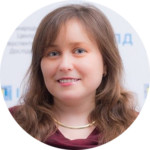
OZ
Olena Zakharova (Centre of Public Initiatives “Ideas for Change”) founded CPI “Ideas for Change” in 2015 after having worked as the Director of ICPS’s Foreign Policy Department since August 2013. Olena already partnered with Polis for the 2016 project “Beyond the Protocol – Women and International Politics in Germany and Ukraine”. Between 2003-2013, she worked at the Political and Security Department of the Ministry of Foreign Affairs of Ukraine and at the Department for Association and European Integration of the Secretariat of the Cabinet of Ministers of Ukraine. Between 2007-2011, she was the First Secretary of the Embassy of Ukraine in Canada (Ottawa).

YK
Yuliia Kaplan is associated member of the Centre for Public Initiatives “Ideas for Change”. During the last 15 years Yuliia has been working as a senior consultant at the National Institute for Strategic Studies. She also provides expertise for the civil society sector: i. e. for Donbas Think Tank on the reintegration of the temporarily uncontrolled territories and for the civil organization “Influence Group” on the protection of the rights of internally displaced persons in Ukraine. From January – February 2018 Yuliia completed a course at the George C. Marshall European Center for Security Studies (Garmisch-Partenkirchen, Germany).

Sonja Schiffers
Sonja Schiffers (Project Lead, Polis180): Sonja is Co-President of Polis180 and Co-Head of Polis’ Program Area Gender and International Politics. In 2016 she implemented the project “Beyond the Protocol – Women and International Politics in Germany and Ukraine”. Sonja is a Visiting Fellow at the German Institute for International and Security Affairs and a PhD candidate at Freie Universität Berlin. Her dissertation deals with illiberal foreign policy, more specifically with Russian and Turkish foreign policy towards Georgia and Bosnia.
Nicola

Nicola Habersetzer
Nicola Habersetzer (Project Assistant, Polis180): Nicola is currently obtaining a master’s degree in Political Science at University of Potsdam, writing her thesis about human rights in Russia. She completed a study stay at the People’s Friendship University in Moscow and gained work experience at the German Institute for International and Security Affairs, the Embassy of Germany in Tallinn, Estonia, and the Federal Ministry of Defence.
Georgia
Georgia
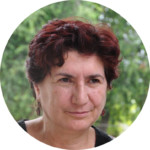
Julia Kharashvili
Julia Kharashvili (IDP Women Association “Consent”) is the Chairperson of the IDP Women Association “Consent”. After the war in Abkhazia (1992-93) and displacement, together with colleagues she created the NGO in order to support internally displaced women. Between 2008- 2010 she served as the Deputy Director of the International Relations department in the Georgian Ministry of Refugees and Accommodation. Julia is a member of the coordination group on the implementation of Georgia’s National Action Plan on Women, Peace and Security. Since 2014 she is a member of the High Level Advisory Group for the Global Study on the impact of the UN Security Council Resolution 1325.

IK
Ivane Kharashvili graduated from Georgian Technical University where he earned a Bachelor’s Degree in Telecommunication Engineering. In 2010 he obtained a Master’s Degree in Administrative Management at “KROK” University, Kyiv. Ivane worked for the International Committee of Red Cross, the Ministry of Refugees and Accommodation of Georgia, UNHCR, the the Norwegian Refugee Council and DVV International. Since 2006 he has been working working for the IDP Women Association “Consent”. Since 2016 he is the founder and director of LLC Pepela Design Laboratory. In 2014 he participated in a training course on the UN Security Council Resolution 1325 on Women, Peace and Security.
Project duration
01 August – 31 December 2018
Our supporters
The project was funded by the German Federal Foreign Office and the Foundation Women in Europe.

SF
IfCIfCIfCIfC
IfCIfCIfCIfC
IfCIfCIfCIfC


